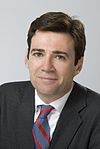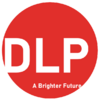User:Glitter/Sandbox6: Difference between revisions
m (→Kingsport) |
|||
| Line 321: | Line 321: | ||
===National identity=== | ===National identity=== | ||
[[File:Swathish_Independence_Rally_in_Longwood.png|200px|thumb|right|Supporters of Wealdish independence at a rally in 2001.]] | [[File:Swathish_Independence_Rally_in_Longwood.png|200px|thumb|right|Supporters of Wealdish independence at a rally in 2001.]] | ||
=Estmere parties= | |||
This article lists political parties in '''[[Estmere]]'''. | |||
==Parties with federal representation== | |||
{| class="wikitable" style="text-align:left;" | |||
|- | |||
! !! Party logo !! Party name !! Leader !! Status !! Seats in the Lesser House !! [[Euclean Parliament]]<br>seats !! Ideology | |||
|- | |||
| rowspan="2" style="background-color:#2804D8"| | |||
| [[File:NUP_Logo.png|center|75px]] | |||
| National Union Party<br>''<small>Theedish Fay<br> Union nationale</small>'' | |||
| align=center |[[File:David Davis 2016.jpg|100px]]<br>[[Reginald Wilton-Smyth]] | |||
| In Government | |||
| {{Infobox political party/seats|169|500|hex=#2804D8}} | |||
| {{Template:Infobox political party/seats|17|118|#2804D8}} | |||
|{{wp|Conservatism}}<br>{{wp|Neoliberalism}}<br>{{wp|Social conservatism}}<br>{{wp|Liberal conservatism}} | |||
|- | |||
| colspan="7" | The NUP was founded in 1937 following Estmere's transition to a republican government. It succeeded the National Conservative Party as the party of the right. It dominated the post-war years and has formed the most governments of any party since Estmere's establishment as a republic. It entered into an electoral alliance with the Progressives since 1976. Their coalition has only been unseated twice, first in 1992 and later in 2008. The party has faced a decline in recent years, losing support to other right-wing parties. In 2016, the first NUP-led government was formed since 2004. It is currently the senior partner in the Federal Appeal coalition. | |||
|- | |||
| rowspan="2" style="background-color:#F78707"| | |||
| [[File:Estmere_Progressives_Logo.png|center|100px]] | |||
| The Progressives<br>''<small>Se Forblowings<br>Les progressistes</small>'' | |||
| align=center |[[File:Rt Hon Dominic Raab MP.jpg|100px]]<br>[[Oliver Osborne]] | |||
| In Government | |||
| {{Infobox political party/seats|142|500|hex=#F78707}} | |||
| {{Template:Infobox political party/seats|25|118|#F78707}} | |||
| {{wp|Social liberalism}}<br>{{wp|Progressivism}}<br>{{wp|Christian democracy|Sotirian democracy}} | |||
|- | |||
| colspan="7" | The Progressives were formed in 1965 following a merger of the Liberal Party, the Sotirian Social Party, and the Solarian Catholic People's Party. It was established a secular party with a centrist platform that positioned itself as the moderate alternative to both the right-wing National Union Party and the left-wing Democratic Labour Party. Overtime, the party has become increasingly socially liberally and has a growing {{wp|soft left}} wing. It has formed a number of governments since 1968 and entered into an electoral alliance with the NUP in 1976. The last Progressives led government was formed in 2012 after Federal Appeal returned to power after being unseated by Estmere First in 2008. It is currently the junior partner in the Federal Appeal coalition. | |||
|- | |||
| rowspan="2" style="background-color:#F60000"| | |||
| [[File:DLP_Logo_2020.png|center|100px]] | |||
| Democratic Labour Party<br>''<small>Folks Arvethpartie<br>Parti démocratique travailliste</small>'' | |||
| align=center |[[File:Andy Burnham2.jpg|100px]]<br>[[Robert Spencers]] | |||
| In Opposition | |||
| {{Infobox political party/seats|78|500|hex=#F60000}} | |||
| {{Template:Infobox political party/seats|33|118|#F60000}} | |||
| {{wp|Social democracy}}<br>{{wp|Democratic socialism}} | |||
|- | |||
| colspan="7" | Founded in 1937, the Democratic Labour Party was established as the party of the Estmerish left. It has struggled to gain traction due to the anti-left alliance of the DLP and the Progressives, the latter of which has ties to the country's traditional sectarian trade unions. It has relied on secular trade unions as its support base. The party only formed a government 1992 in the aftermath of the [[1989 Estmerish political crisis|1989 political crisis]]. Its tenure in government was racked by infighting, bringing it back to the opposition. It is traditionally the largest opposition party. | |||
|- | |||
| rowspan="2" style="background-color:black"| | |||
| [[File:Estmere_First_Logo.png|center|100px]] | |||
| Estmere First<br>''<small>Eastmarchon Forthgo<br>L'Estme d'abord</small>'' | |||
| align=center |[[File:Osborne 2015.jpg|100px]]<br>[[George Avery]] | |||
| In Opposition | |||
| {{Infobox political party/seats|64|500|hex=#000000}} | |||
| {{Template:Infobox political party/seats|5|118|#000000}} | |||
| {{wp|Nationalism|Estmerish nationalism}}<br>{{wp|Conservatism}}<br>{{wp|Eurosceptism|Soft-euclosceptism}}<br>{{wp|Populism}} | |||
|- | |||
| colspan="7" | Estmere First was formed in 1984 by right-wing members of the National Union Party who were opposed to Estmerish participation in the [[Euclean Community#Euclozone|Euclozone]]. It positioned itself as {{wp|Conservatism|conservative}} party that drew inspiration from {{wp|One Nation Tory|National Conservatism}} and had a smaller {{wp|Classical liberalism|classical liberal}} faction. Support for the party grew during the 1990s and after the 2005 World Financial Crisis it capitalized on anti-government sentiments. It formed a government following the 2008 general election and held a referendum on withdrawal from the Euclozone in 2010, which was defeated. The party was hit by a number of scandals during its tenure. It was defeated in 2012 by Federal Appeal and a number of its members were prosecuted by the Sharpe Government. Support for Estmere First has since declined, losing supporters to the NUP or to the recently formed National Interest - Party for Democracy. | |||
|- | |||
|} | |||
Revision as of 17:20, 20 April 2020
Ashcombe
Flurland
Flurland | |
|---|---|
Republic of Estmere |
Kingsport
Kingsport | |
|---|---|
Estmerish Overseas Territory | |
| Motto(s): Ours is the Right | |
| Capital | Kingston |
| Estmerish settlement | 1601 |
| Named for | Henry King |
| Leaders | |
• President | Alice Roberts |
• Governor | Edwina Filmore |
• Executive | Maurice Renouf |
| Legislature | Territorial Council |
| Area | |
• Total | 1,129 km2 (436 sq mi) |
| Population | |
• 2018 estimate | 34,581 |
• Density | 30.63/km2 (79.3/sq mi) |
| Currency | Euclo (EUC (€)) |
| Calling code | +42-22 |
Kingsport is a island in the Mid-Vehemens Ocean located off the coast of Tabora. It is an Estmerish Overseas Territory. While officially referred to in the singular, Kingsport includes a number of smaller islands that make up the Rutherford archipelago. It has a total area of 1,129 kilometres squared and a population of 34,581 (2018 estimate). The capital city and largest settlement is Kingston. Kingsport is self-governing and has its own government which is responsible for local laws. It is named for Henry King, a 16th century Estmerish admiral.
The island was inhabited by Imerinans prior to Euclean settlement. It first came under the control of the Matambing Empire in the 14th century and was later conquered by Estmere in 1601. It was an important stop for ships traveling from Coius to Euclea and the Asterias. The main island hosts a large naval base that is home to nearly 8,000 service-members and their families.
Name
Kingsport is named after Henry King, a prominent 16th century Estmerish admiral. A small trading port was originally constructed on the island and completed in 1602, which was then called King's Port. The native name for Kingsport's main islands is Pulau Hujung, which has been translated into Estmerish as the "island at the end". This is a reference to the island's location on the periphery of the Tuarikain archipelago.
St Robert's and Fleming
Wealdland
Wealdland | |
|---|---|
Republic of Estmere |
Culture
National identity
Estmere parties
This article lists political parties in Estmere.
Parties with federal representation
| Party logo | Party name | Leader | Status | Seats in the Lesser House | Euclean Parliament seats |
Ideology | |
|---|---|---|---|---|---|---|---|
| National Union Party Theedish Fay Union nationale |
 Reginald Wilton-Smyth |
In Government | 169 / 500
|
17 / 118
|
Conservatism Neoliberalism Social conservatism Liberal conservatism | ||
| The NUP was founded in 1937 following Estmere's transition to a republican government. It succeeded the National Conservative Party as the party of the right. It dominated the post-war years and has formed the most governments of any party since Estmere's establishment as a republic. It entered into an electoral alliance with the Progressives since 1976. Their coalition has only been unseated twice, first in 1992 and later in 2008. The party has faced a decline in recent years, losing support to other right-wing parties. In 2016, the first NUP-led government was formed since 2004. It is currently the senior partner in the Federal Appeal coalition. | |||||||
| The Progressives Se Forblowings Les progressistes |
 Oliver Osborne |
In Government | 142 / 500
|
25 / 118
|
Social liberalism Progressivism Sotirian democracy | ||
| The Progressives were formed in 1965 following a merger of the Liberal Party, the Sotirian Social Party, and the Solarian Catholic People's Party. It was established a secular party with a centrist platform that positioned itself as the moderate alternative to both the right-wing National Union Party and the left-wing Democratic Labour Party. Overtime, the party has become increasingly socially liberally and has a growing soft left wing. It has formed a number of governments since 1968 and entered into an electoral alliance with the NUP in 1976. The last Progressives led government was formed in 2012 after Federal Appeal returned to power after being unseated by Estmere First in 2008. It is currently the junior partner in the Federal Appeal coalition. | |||||||
| Democratic Labour Party Folks Arvethpartie Parti démocratique travailliste |
 Robert Spencers |
In Opposition | 78 / 500
|
33 / 118
|
Social democracy Democratic socialism | ||
| Founded in 1937, the Democratic Labour Party was established as the party of the Estmerish left. It has struggled to gain traction due to the anti-left alliance of the DLP and the Progressives, the latter of which has ties to the country's traditional sectarian trade unions. It has relied on secular trade unions as its support base. The party only formed a government 1992 in the aftermath of the 1989 political crisis. Its tenure in government was racked by infighting, bringing it back to the opposition. It is traditionally the largest opposition party. | |||||||
| Estmere First Eastmarchon Forthgo L'Estme d'abord |
 George Avery |
In Opposition | 64 / 500
|
5 / 118
|
Estmerish nationalism Conservatism Soft-euclosceptism Populism | ||
| Estmere First was formed in 1984 by right-wing members of the National Union Party who were opposed to Estmerish participation in the Euclozone. It positioned itself as conservative party that drew inspiration from National Conservatism and had a smaller classical liberal faction. Support for the party grew during the 1990s and after the 2005 World Financial Crisis it capitalized on anti-government sentiments. It formed a government following the 2008 general election and held a referendum on withdrawal from the Euclozone in 2010, which was defeated. The party was hit by a number of scandals during its tenure. It was defeated in 2012 by Federal Appeal and a number of its members were prosecuted by the Sharpe Government. Support for Estmere First has since declined, losing supporters to the NUP or to the recently formed National Interest - Party for Democracy. | |||||||



